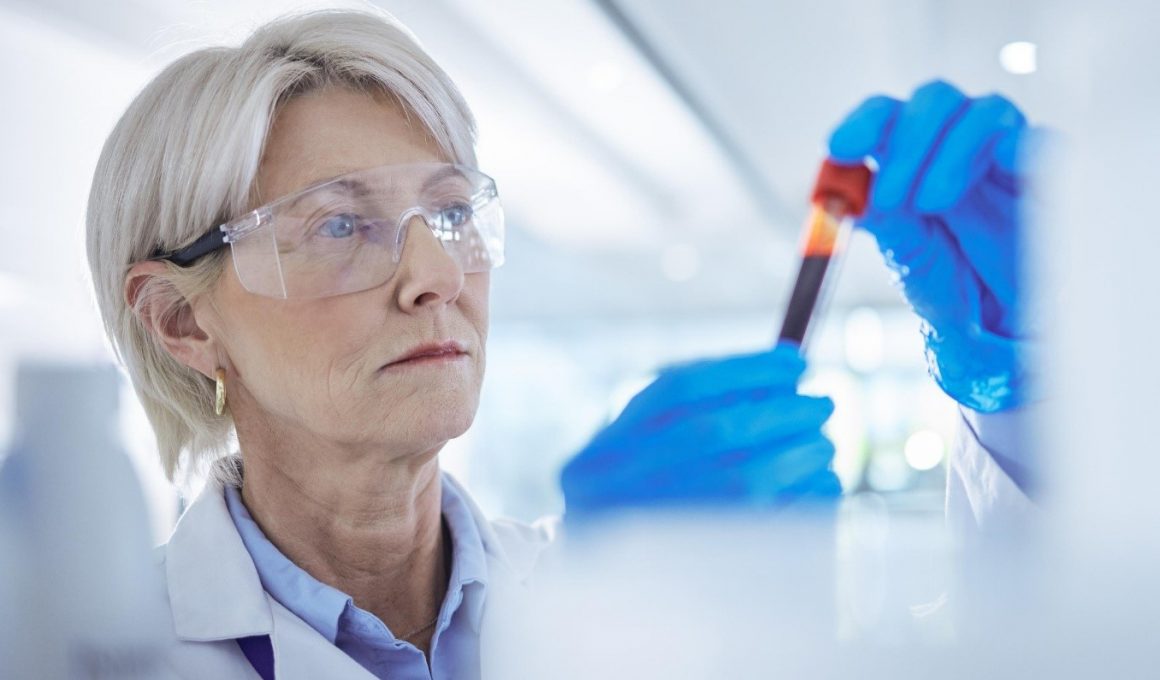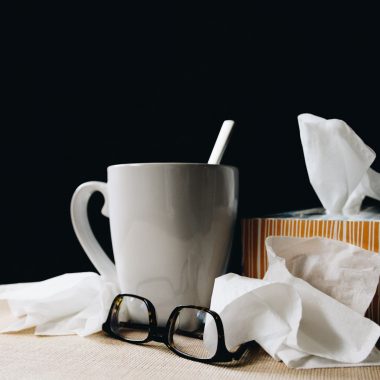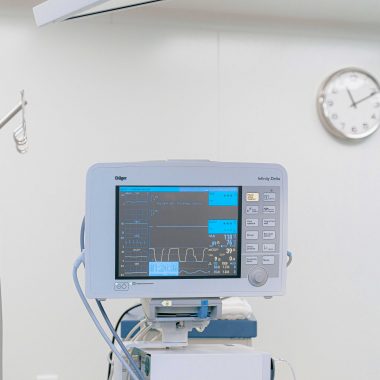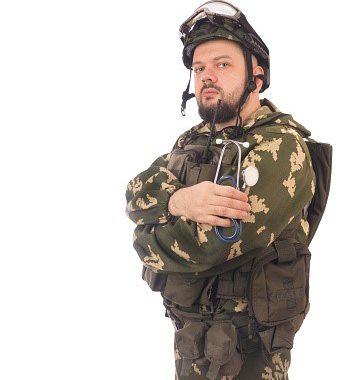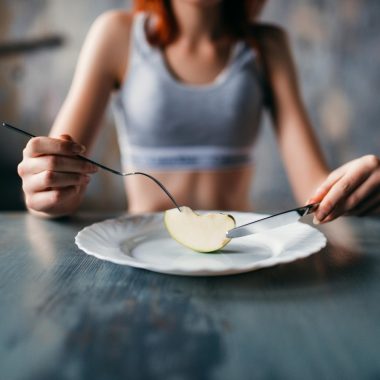Iron deficiency anemia is the most popular anemia type out there. It is a condition characterized by the lack of healthy red blood cells. Your Red blood cells(RBCs) carry oxygen to your body’s tissues. Therefore, any disturbance in healthy red blood cell count can cause serious side effects.
As its name implies, an iron deficiency is caused by insufficient iron levels. Without enough iron, the body can’t produce enough hemoglobin, a substance in your red blood cells that gives them their red color and allows them to carry oxygen around your body. As a result, people with iron deficiency often feel tired and out of breath.
Iron deficiency anemia can usually be corrected with iron supplements. However, additional tests are necessary in some cases, especially if doctors suspect the patient may be bleeding internally.
Iron deficiency anemia is extremely dangerous and should be taken extremely seriously. An iron deficiency can cause very harmful and scary side effects if left untreated.
Pregnant and breastfeeding women are usually at a higher risk of developing an iron Deficiency. It is hazardous to these ladies. If untreated, it can cause many issues for the mother and the unborn child. Its dangers lie in that it increases the risk of morbidity among mothers and infants. Not only that, but it also increases the chances of new mothers developing postpartum depression and other emotional disorders after giving birth successfully. as well as reduced quality of mother-child bonding.
It also affects babies terribly. For example, babies whose mothers suffer from an iron deficiency during pregnancy are usually at a higher risk of being born at a low weight and a higher risk of higher levels of irritability.
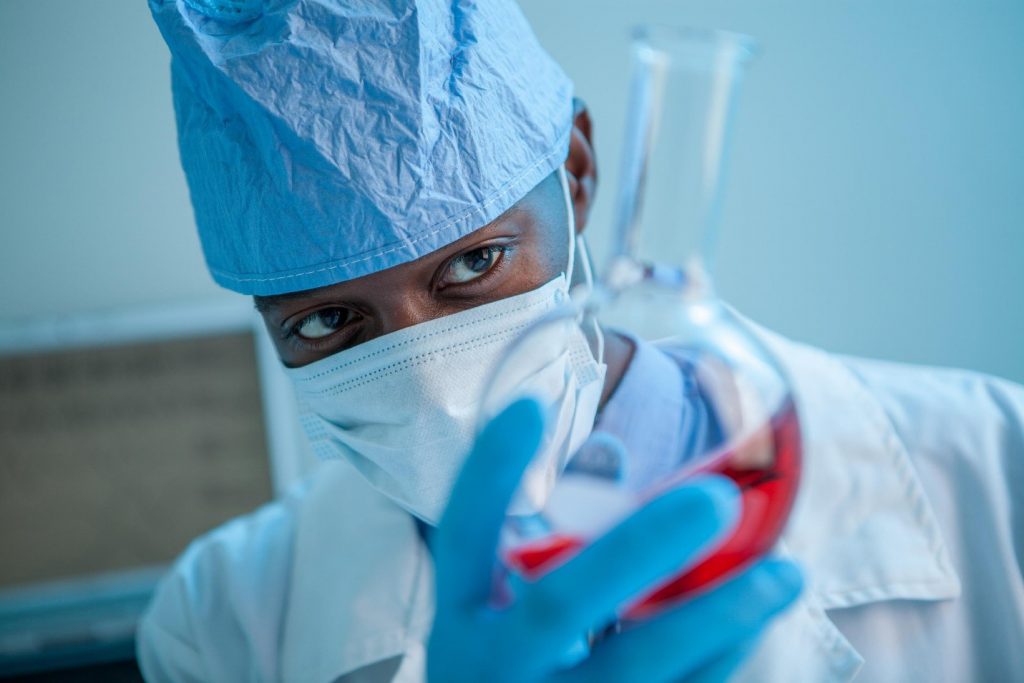
What are the Symptoms of iron deficiency anemia?
In most cases, iron deficiency anemia can be relatively mild at first, and it goes primarily unnoticed. But as the body becomes more deficient, the signs and symptoms intensify. This means it becomes more visible outside, and the patient starts to feel more and more side effects. These side effects become worse and worse with time.
Iron deficiency anemia symptoms include:
–Extreme fatigue. Patients start to feel more tired after regular everyday activities like cooking, washing the dishes, or walking through the supermarket!
-Weakness. Patients feel weak and unable to open jars, lift bags or boxes or even push a stroller.
–Pale skin. The skin starts to look pale/ yellow and sickly, making you look sick all the time
–Chest pain, fast heartbeat, or shortness of breath. Some patients may experience strong heart palpitations and fast heartbeats caused by insufficient red blood cells. These heart palpitations can cause chest/ heat pain in some patients.
–Headaches, dizziness, or lightheadedness. Feeling light-headed or dizzy is one of the most common symptoms of iron deficiency. Almost all people who experience an iron deficiency typically experience lightheadedness and headaches.
-Cold hands and feet. Not enough red blood cells mean insufficient blood circulation, which means insufficient blood gets to your feet or hands/fingertips. Not getting enough blood can leave your hands and feet feeling cold, even in warmer weather.
-Inflammation or soreness of your tongue. Also known as Glossitis. It is a tongue inflammation caused by a lack of iron in the body.
–Brittle nails. Another widespread iron deficiency is brittle nails. Patients with an iron deficiency start noticing their nails are either breaking or not growing.
-Unusual cravings for non-nutritive, not typically eaten substances and items, such as ice, dirt, or stones.
-poor appetite, especially in infants and small children.
-Hair Loss. Most patients who suffer from iron Deficiency also struggle with significant hair loss. Hair often falls out in chunks and might never grow back as thicker or stronger as before.
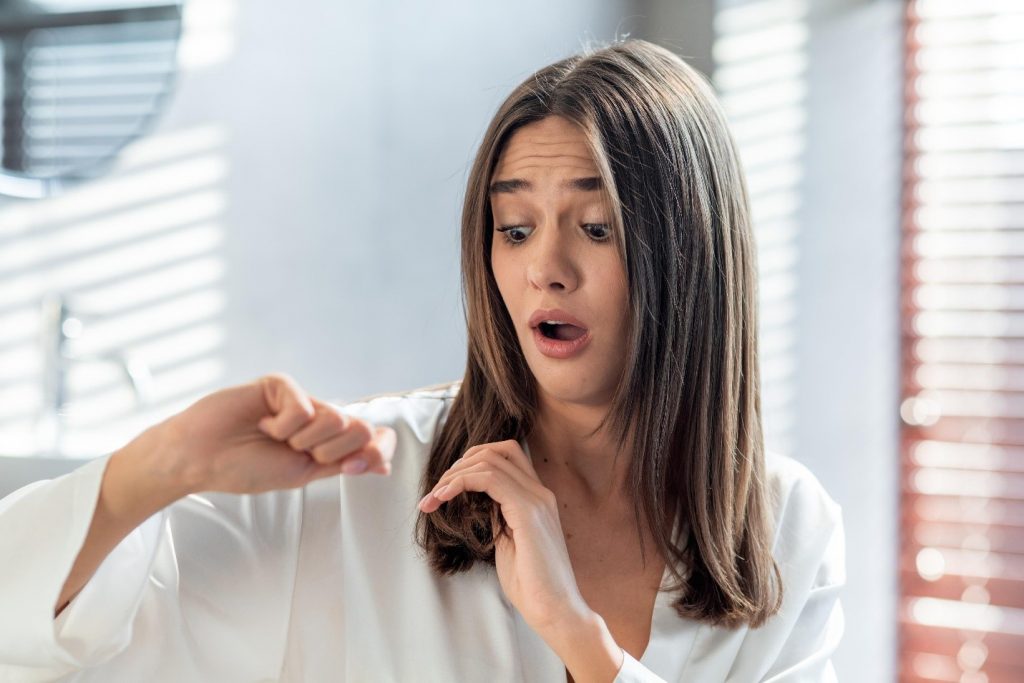
When should you see a doctor?
See your doctor immediately if you notice any signs and symptoms of iron deficiency anemia in yourself or your minor child. Iron deficiency anemia is NOT the thing to self-diagnose or treat at home. See your doctor first for a diagnosis rather than just taking iron supplements of your own accord. Overconsuming iron supplements can be extremely dangerous because excess iron can damage your liver and cause multiple other complications.
What are the causes of Iron deficiency anemia?
An iron deficiency is caused by the lack of iron which causes a shortage in the production of hemoglobin which is the thing that gives blood cells their red color and their ability to carry oxygen through the body.
There are many causes of iron deficiency anemia which include:
-Blood loss. Blood contains iron within its red blood cells. So, if the patient loses blood, they lose iron. Women who struggle with heavy flows while on their periods are at a higher risk of suffering an iron deficiency because they lose a lot of blood during menstruation. And slow, chronic blood loss inside the body caused by things such as a peptic ulcer, a hernia, or even colorectal cancer all can cause iron deficiency.
-A low iron diet. Your body typically gets its iron needs from the foods you consume. If you consume too little iron, your body can become deficient. Iron-rich foods may include meat, greens, vegetables, and eggs. Getting the most iron from their diets is extremely important to ensure that your infants or small children develop and grow properly.
-An inability to absorb iron. The iron you get from your food usually is absorbed into the bloodstream in the small intestines. People who suffer from things like celiac disease, which is a disease that affects the intestine’s capability to absorb nutrients from the food consumed and digested, which in turn can cause iron deficiency.
-Pregnancy. Iron deficiency regularly occurs in many pregnant women as a result of their iron stores needing to serve their increased blood volume and be able to create a source of hemoglobin for their growing baby.
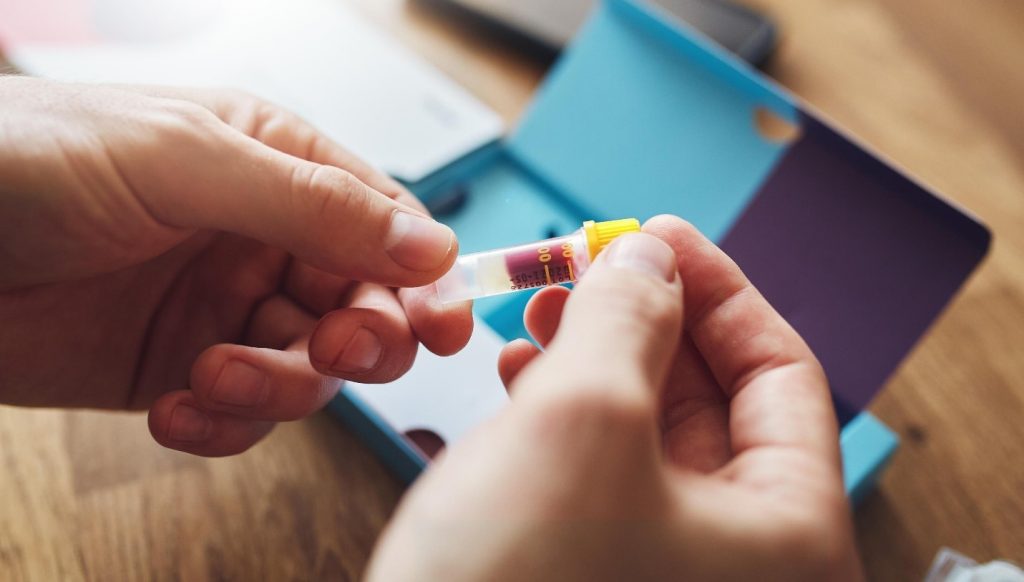
and be able to create a source of hemoglobin for their growing baby.
How to prevent an Iron Deficiency:
People with an iron deficiency struggle with daily activities and have a lot of other physical side effects, such as Brittle nails, hair loss, headaches, and dizziness.
These side effects can harm the patient’s well-being and quality of life. They make it difficult for people to function and do basic daily activities and can put them in harm’s way if they’re not being cautious. For example, some patients may have to quit their jobs because of their inability to function or breathe correctly or because they get fatigued quickly. It can also cause harm to pregnant women and their infants.
An iron deficiency can cause other issues or worsen existing diseases because it affects the blood, the essential part of your body and your lifeline.
Pregnant women who already struggle with untreated iron deficient pre-pregnancy not only get sick themselves but will also end up with sick babies. Iron is essential to a child’s growth and development, be it intellectual or physical. Kids who suffer from chronic iron deficiency are usually ill, tired, and exhausted all the time.
This means these kids might be alive, but their quality of life is not excellent. They are unable to do or participate in the activities other children their age gets to do and are often seen as outcasts which can be detrimental to their mental well-being and development.
To avoid that happening, you should seek medical assistance. Don’t try to self-diagnose or self-treat because it’s never a good idea, especially in the case of a small child or an adult suffering from severe and obvious symptoms and signs of an iron deficiency.
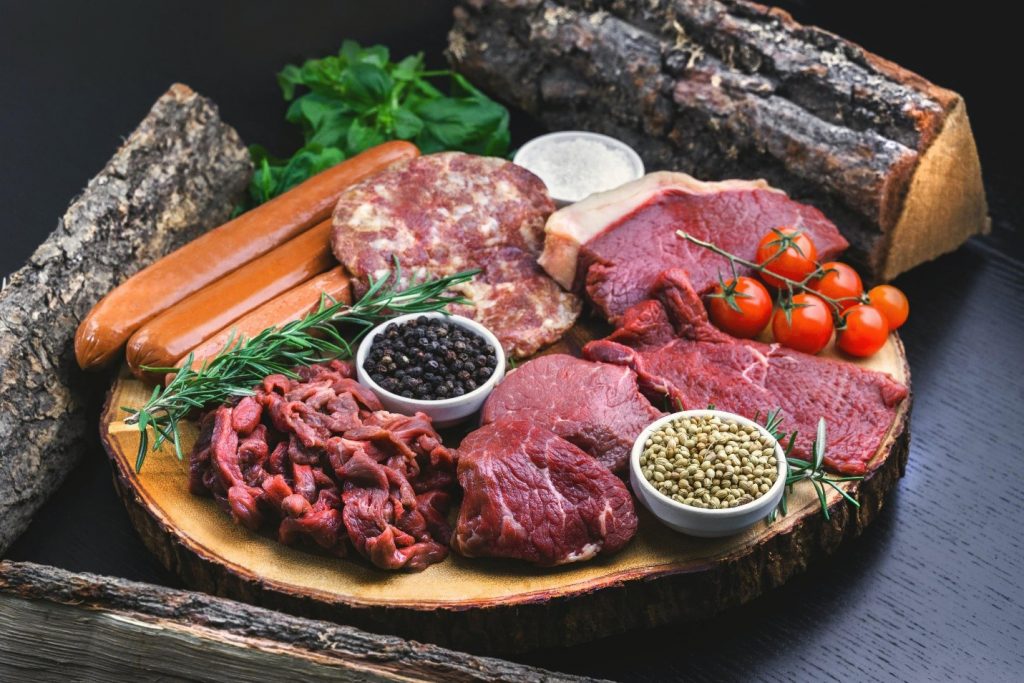
To help prevent an iron deficiency as much as possible in both adults and small children:
1-Choose iron-rich foods
Eating a diet rich in iron is the best thing you can do for yourself or your children. Iron-rich food is the easiest and most effective way to get iron into your body without taking medical-grade supplements. This step is significant to take when you have small children. Including iron in their breakfast omelets is a great way to start the morning with an iron boost! Children need all the good nutritious foods they can get at this time. They need iron to grow physically and to develop mentally.
As for adults, if you think you might have an iron deficiency but you don’t have very severe symptoms yet, integrating iron-rich foods into your diet is a great way to combat that and prevent it from getting worse. If you do this the right way and don’t overdo it, over time, your iron Deficiency will get better and quite possibly go away.
We advise that you seek professional medical attention too.
What are some foods high in iron?
There is a wide range of iron-rich foods out there. Some have higher levels than others, but all will help you through your journey. Choosing the right food is also very important. Choosing foods you don’t like or enjoy eating can make the eating experience not fun, and people will often dread the fact that they have to eat certain foods. So, choosing foods you love and enjoy eating can help you tremendously integrate iron into your daily diet and eating habits, and with time, this new habit will become the norm.
-Red meat, pork, and poultry. Red meats are high in protein and iron, therefore filling. It helps you a lot in combating the side effects of iron deficiency and is delicious! It’s important to note that the over-consumption of red meat can cause harm to your body over time. Eating it once or twice a week is a great idea!
-Seafood. Before consuming seafood, make sure you don’t have a shellfish allergy. A shellfish allergy can be extremely dangerous. Fish is also rich in omega three, so it’s a win-win situation. You get your needs of omega three while also getting your needs of iron!
-Beans. Beans are very filling, and they’re the most popular non-meat-related source of protein and iron. Therefore, most vegan lunches will include beans as their source of protein and iron. In addition, we see beans are very commonly used in Mexican cuisine because they’re incredibly healthy and abundant in Mexico.
-Beans. Beans are very filling, and they’re the most popular non-meat-related source of protein and iron. Therefore, most vegan lunches will include beans as their source of protein and iron. In addition, we see beans are very commonly used in Mexican cuisine because they’re incredibly healthy and abundant in Mexico.
-Dark green leafy vegetables, such as spinach. Adding spinach to your breakfast omelets, in your salads, or just grilling them makes for a great, cheap, and readily available source of iron.
-Dried fruit, such as raisins and apricots. Many people dislike raisins and find it strange when people put raisins in their potato salad, but it’s a brilliant idea! If you dislike a portion of food and can’t force yourself to eat it no matter what you do, it’s a great idea to add it to your other foods and hide it in the dish. You won’t notice it, but you’ll feel all its sound effects on your body after a while.
-Iron-fortified cereals, bread, and pasta. Iron-rich foods such as certain cereals can be a great breakfast option for little picky eaters who refuse to eat anything but grain for breakfast. Switching their sugar-filled artificial-colored cereals with a natural alternative is a significant first step!
Peas. Peas are a delicious source of iron that can be added to any dish and easily hidden in many words, especially if your kid refuses to eat them.
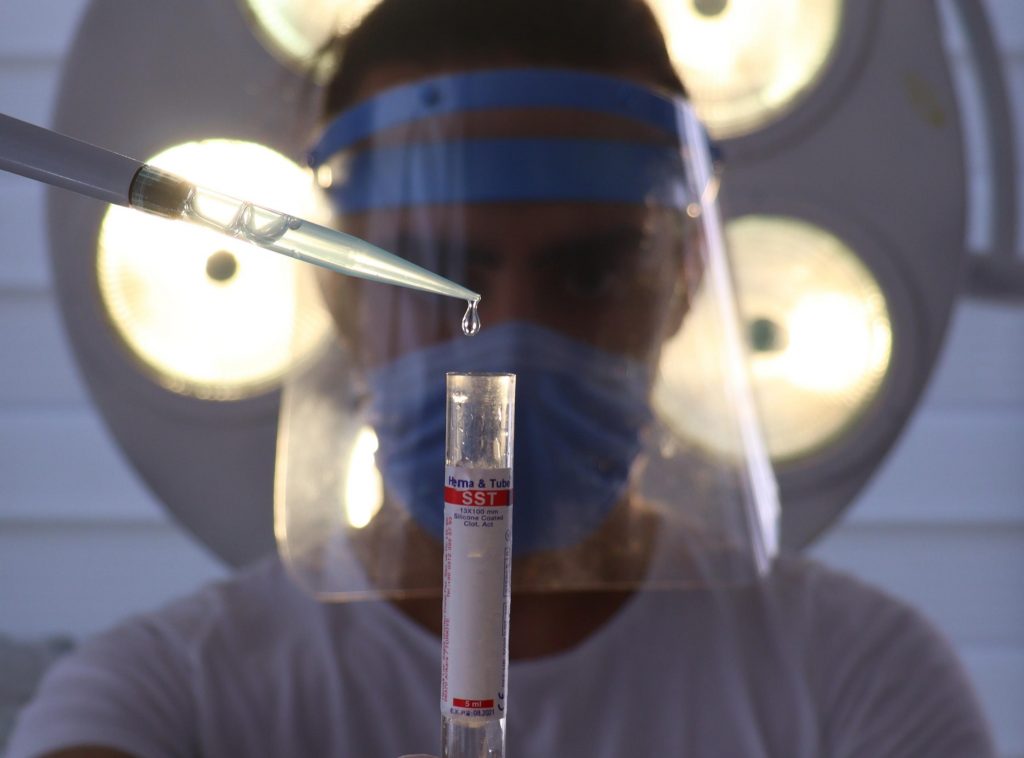
Your body absorbs much more iron from the meat you eat than other sources. Therefore, if you choose not to eat meat for dietary or religious reasons, you must increase your intake of iron-rich, plant-based foods.
When choosing foods that help treat your iron deficiency, Choose to contain vitamin C to enhance iron absorption.
You can enhance your body’s ability to absorb iron by drinking or drinking the juice of foods that are high in vitamin C while you eat high-iron foods.
Vitamin C can be found in:
Grapefruit
Kiwi
Leafy greens
Melons
Oranges
Peppers
Strawberries
Tangerines
Tomatoes
-Taking iron supplements:
Some doctors may prescribe patients, especially those with high levels of iron deficiency and pregnant ladies, iron supplements.
These supplements will help you get the iron you need every day without eating lots of iron-rich foods. This is especially Great for picky eaters and expecting mothers.
Pregnant women may find it very hard to eat certain foods. They may feel disgusted or repulsed by certain foods, and that’s very normal. But the inability to consume these foods can put them and their unborn babies at risk of developing vitamin and iron Deficiencies which isn’t something they need or want. So most prenatal vitamins and supplements include iron supplements.
Picky eaters also benefit significantly from iron supplements because they might not be able to eat foods with these vital vitamins. Vegans and people with allergies also benefit from iron replacement supplements because they cannot get the iron from actual iron-rich foods because of their limited diets and feed preferences.
Iron is a vital and essential mineral for your body. It aids in the development of the body since it is an integral part of hemoglobin creation which is a protein in your red blood cells that carries oxygen(O2) from the lungs to all other parts of the body, and also myoglobin, which is a protein that provides oxygen to the muscles. Therefore, ensuring your body gets all the iron it needs is essential, especially if you are a regular gym goer or someone with a very active lifestyle to protect your muscles and your lungs.
It is very important to seek medical help if needed and if you think you may have an iron deficiency anemia. It can be hazardous and detrimental to your health, so please avoid self-diagnosing and treatment and listen to your doctors. Iron deficiency anemia is no joke, and it is a very difficult diagnosis. And although it is easily treatable with a change of diets and supplements, it is still just as dangerous as any other deficiency, especially if left untreated. Talk to your doctors, listen to your primary care providers and take your medication as instructed. Taking care of your health is the most important thing to do.
